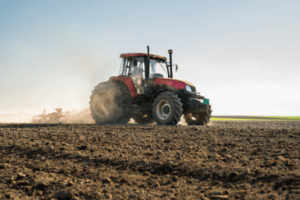June 2024 FloridAgriculture eNewsletter
Peanut Marketing News released the following update on the Farm Bill on Friday, May 24, 2024.
 The Farm, Food, and National Security Act of 2024 (Farm Bill) passed out of Committee tonight in a vote of (33- 22). Four Democrats (Reps. Bishop (GA), Caraveo (CO), Davis (NC), and Sorenson (IL)) joined with all Republican committee members in voting yes. No floor time has been scheduled to date. Democrats and Republicans sparred over the main issue of funding for the total farm bill. The proposed legislation would draw on SNAP as a source of funds to cover commodity programs.
The Farm, Food, and National Security Act of 2024 (Farm Bill) passed out of Committee tonight in a vote of (33- 22). Four Democrats (Reps. Bishop (GA), Caraveo (CO), Davis (NC), and Sorenson (IL)) joined with all Republican committee members in voting yes. No floor time has been scheduled to date. Democrats and Republicans sparred over the main issue of funding for the total farm bill. The proposed legislation would draw on SNAP as a source of funds to cover commodity programs.
The importance of a five-year farm bill reauthorization cannot be overstated. Meaningful investments in the farm safety net are necessary to provide stability and certainty for the farmers and ranchers that feed, fuel, and clothe our country. Ad hoc spending is neither reliable nor effective and often falls short of delivering much needed assistance for many producers.
With these principles in mind and based on feedback from hundreds of stakeholders at dozens of listening sessions and hearings over the past 17 months, the Farm, Food, and National Security Act of 2024 was drafted to meet the needs of farm country. Several members of the committee praised the Chairman for attending numerous hearings all across the country preparing the draft for the House Agriculture Committee’s Farm Bill.
Over the last two years producers have experienced a precipitous decline in commodity prices that is expected to continue throughout the life of this farm bill. Additionally, due to rising inflation, production expenses have ballooned over 30% since the 2018 Farm Bill was enacted into law and are expected to continue to climb.
Without adequate support, the impact of this collapse in NFI will be further exacerbated. Increases in commodity prices over the last three decades have been outstripped by increases in the cost of production. In fact, the ratio of prices received to prices paid fell 55% from 1990 to 2020 and despite a slight rebound into 2023, the ratio is still 50% lower than in 1990.
Enhancements to the Farm Safety Net
The Farm, Food, and National Security Act of 2024 makes targeted improvements to meet the needs of each commodity and provide enhanced support moving forward by bolstering the flagship Title I programs, Price Loss Coverage (PLC) and Agriculture Risk Coverage (ARC) through increases to Statutory Reference Prices (SRP) and improving ARC for all commodities. The Statutory Reference for peanuts would be $630 ton, up from $535 ton. Additionally, for the first time in decades, producers will have an opportunity to add base acres to their farm, granting access to Title I programs for many farmers who have been previously excluded. Marketing Assistance Loans are strengthened through increases in the loan rate for all commodities. The Loan rate for peanuts would increase from $355 per ton to $390 per ton.
Crop insurance coverage for producers is expanded though the enhancement of area-wide coverage options, making insurance more affordable. Payment limits are also modernized to help keep pace with inflation.
 The House has turned their attention to appropriations for the summer, so there will likely not be any more movement in the House until the lame duck session at the end of the year. The Senate has not advanced any form of the Farm Bill within the Senate Ag Committee yet.
The House has turned their attention to appropriations for the summer, so there will likely not be any more movement in the House until the lame duck session at the end of the year. The Senate has not advanced any form of the Farm Bill within the Senate Ag Committee yet. 
 The Farm, Food, and National Security Act of 2024 (Farm Bill) passed out of Committee tonight in a vote of (33- 22). Four Democrats (Reps. Bishop (GA), Caraveo (CO), Davis (NC), and Sorenson (IL)) joined with all Republican committee members in voting yes. No floor time has been scheduled to date. Democrats and Republicans sparred over the main issue of funding for the total farm bill. The proposed legislation would draw on SNAP as a source of funds to cover commodity programs.
The Farm, Food, and National Security Act of 2024 (Farm Bill) passed out of Committee tonight in a vote of (33- 22). Four Democrats (Reps. Bishop (GA), Caraveo (CO), Davis (NC), and Sorenson (IL)) joined with all Republican committee members in voting yes. No floor time has been scheduled to date. Democrats and Republicans sparred over the main issue of funding for the total farm bill. The proposed legislation would draw on SNAP as a source of funds to cover commodity programs.